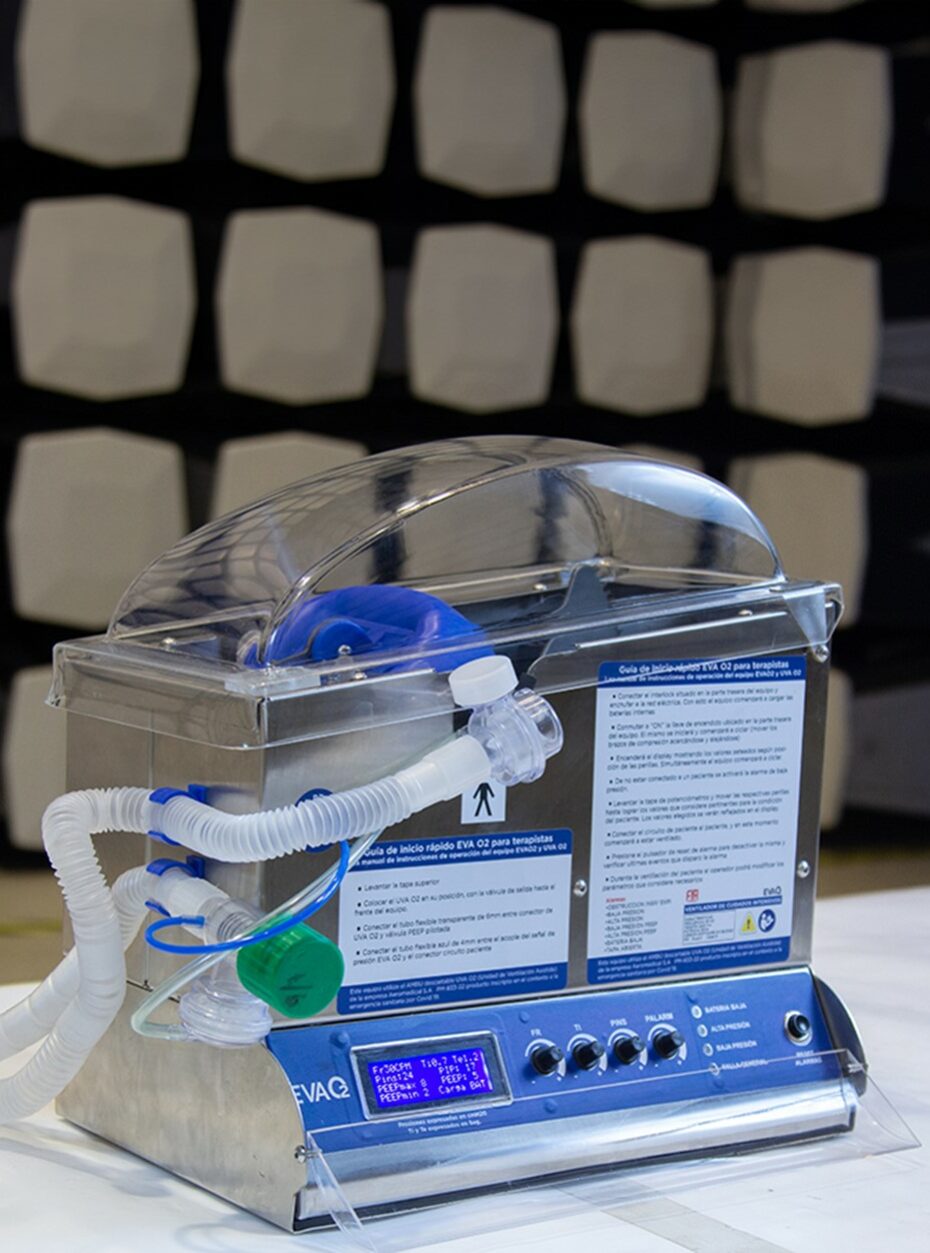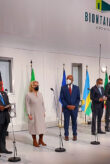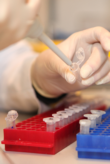Between 2020 and 2022, PTB’s International Cooperation group supported a project of the Inter-American Metrology System, or SIM (for Sistema Interamericana de Metrologia in Spanish), aimed at improving the basic metrology infrastructure for medical testing equipment. This project was a direct response to the scarcity of breathing apparatus for COVID-19 patients in many Latin American countries and to the insufficient capabilities to calibrate such devices.
In countries such as Argentina, Brazil, Chile, Peru and Mexico, governments supported initiatives by universities, research and development centres, and small and medium-sized enterprises to develop mechanical ventilators, but their successful operation depended on the traceability of the measurements and on the availability of comparable and reliable test results. Because many national metrology institutes (NMIs) had in the past developed their measurement capabilities for high gas flow pressures and large volumes, they did not have sufficient experience in measuring low-pressure gas flows and microvolumes. The two main objectives of this innovative project were therefore to enhance the capabilities for low-pressure gas flow and microvolume measurement and to contribute to the development of simple, low-cost measurement instruments for the calibration of mechanical ventilators. The project aimed not only to improve the measurement capabilities of the NMIs but also at supporting innovation processes in the participating countries.
The response from the NMIs and research and development institutions was overwhelming. Almost all NMIs on the Latin American continent provided assistance to the different activities or contributed actively to the project. INTI (Argentina), INMETRO (Brazil), ISP/INN (Chile), LCM (Costa Rica), LNM-INEN (Ecuador), CIM-UFG (El Salvador), CENAM (Mexico), CENAMEP-INDICASAT (Panamá), INACAL (Peru) and LATU (Uruguay) shared their experiences in two virtual workshops, partly in collaboration with their partners in academia and industry.
Extremely valuable were the technology transfer presentations made by John Wright (NIST, USA), Sonia Trujillo (CENAM, Mexico) and Elsa Batista (IPQ, Portugal) on the reference standards for gas flow calibration and the calibration of piston pipettes as a part of a quality assurance program.
The project concluded with a four-day presential training and awareness event in Lima hosted by INACAL from 8 to 11 November 2022. Besides presenting the results of the different activities implemented over the previous two years, participants visited the laboratories of INACAL’s Dirección de Metrología and discussed the learnings gained from the project with medical metrology clients, i.e., from the health sector and industry.
The lessons learned for the future can be summarized as follows: The pandemic has evidenced the importance of health as a public good. As part of our social welfare system, national healthcare schemes require more attention and higher public expenditures then in the past. The vulnerability of international economic relations demonstrated the great importance of national and regional capacities for manufacturing basic medical devices and for health-related metrological and quality infrastructure services. In many countries, the importance of quality infrastructure for the health sector is underestimated. QI for health requires greater attention from national authorities and sufficient funding. This makes the ongoing strengthening of international, regional and bilateral cooperation in the field of metrology for health all the more important. Similarly, effective coordination and collaboration between quality infrastructure institutions and national health systems are key to ensuring the well-being of the population.
Image © INTI








